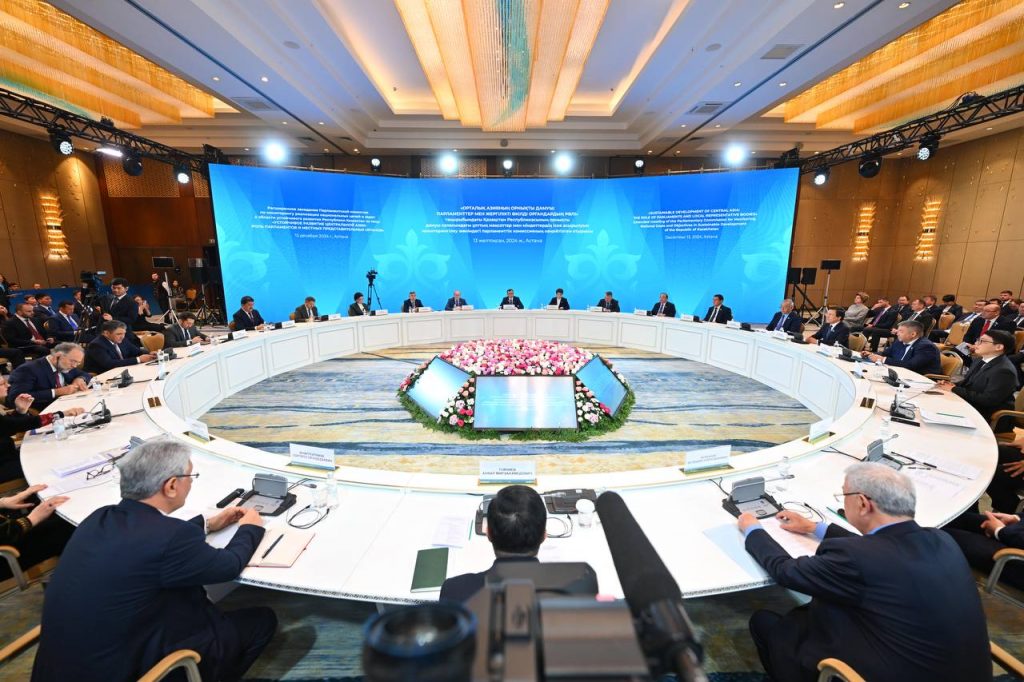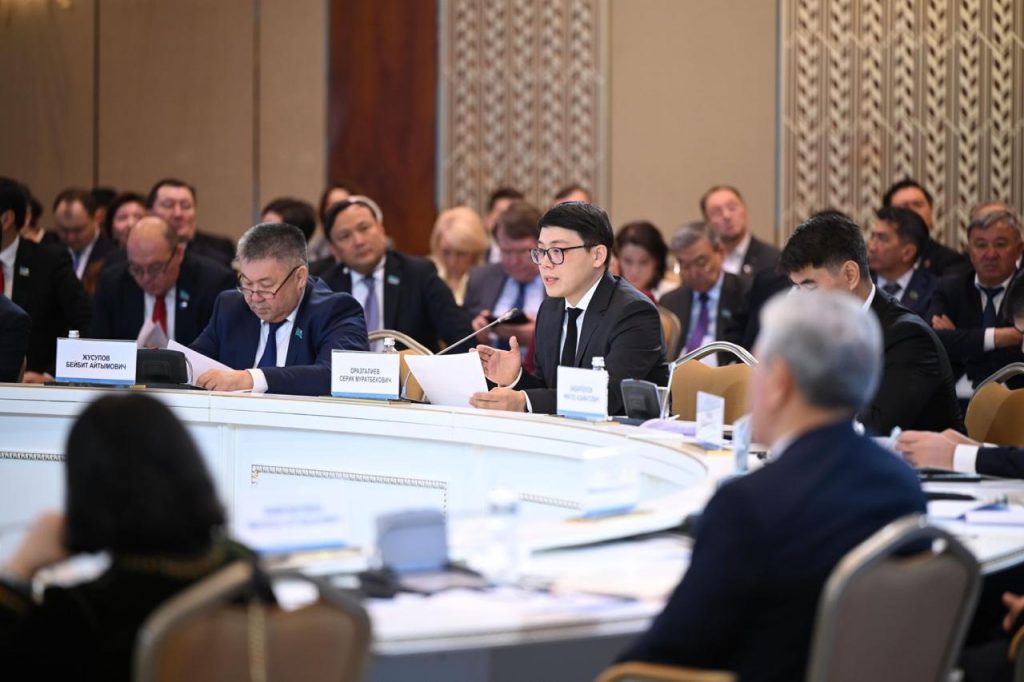NU GSPP Associate Professor Dr. Serik Orazgaliyev participated in the session of the Parliamentary Commission for Monitoring the Implementation of National Goals and Objectives on Sustainable Development
18.12.2024On December 13, 2024, the Senate of the Republic of Kazakhstan hosted an Expanded Meeting of the Parliamentary Commission for Monitoring the Implementation of National Goals and Objectives on Sustainable Development.

The meeting focused on the role of Parliaments and local representative bodies in promoting sustainable development across the Central Asian region. Participants, including members of the parliamentary commission, experts, and invited stakeholders, reviewed Kazakhstan’s progress toward achieving the SDGs over the past 10 years. They also identified key challenges impeding regional sustainable development.
“Today, the contribution of national Parliaments to achieving the SDGs is noticeably increasing, particularly in areas such as ecosystem preservation, water, and energy security. We must intensify joint efforts in inter-parliamentary cooperation to ensure harmonious, inclusive, and balanced regional development. Local authorities also play a critical role. Success in advancing the sustainable development agenda at the local level depends on their active participation. It is important to involve local representative bodies in our dialogue and develop unified approaches to addressing local population challenges through the lens of the SDGs,” noted Maulen Ashimbayev, Chairman of the Senate.
During the meeting, Dr. Serik Orazgaliyev, Co-Chair of SDSN Kazakhstan and a member of the Experts Club under the Senate, presented the SDG Barometer project, implemented with the support of a grant from the Ministry of Science and Higher Education.

The SDG Barometer Kazakhstan 2024 is an initiative of the Sustainable Development Solutions Network Kazakhstan, designed to gather comprehensive and inclusive data on public opinions, expectations, and priorities regarding the UN Sustainable Development Goals (SDGs). The survey engaged over 3,000 respondents across 17 regions and 3 major cities of Kazakhstan, addressing national, subnational, and individual perspectives on the most pressing issues. Its methodology strictly adhered to the “leaving no one behind” principle, ensuring the collection of granular data to reflect the voices of diverse population segments.
The project presentation was met with great interest, and the Chairman of the Senate, Maulen Ashimbayev, emphasized that the study’s results would serve as a valuable resource for the Parliament to further evaluate key indicators and trends related to Kazakhstan’s sustainable development efforts.

